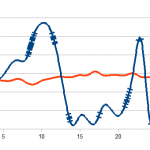Articles tagged with ‘Habits’
-
The three factors that determine how much Chinese you learn
When learning Chinese, your progress depends on three factors: the content you study, the methods you use, and the time you dedicate. To achieve your goals quickly and efficiently, strive to optimise all three!
Read → -
Habit hacking for language learners
Habits are routines that become smooth and effortless with repetition. They are essential for managing daily life efficiently, and by developing the right habits for learning Chinese, you can learn more with less effort!
Read → -
Interview: Insights from Skritter’s Complete Guide to Learning Chinese
If I wrote a comprehensive guide to learning Chinese with a special focus on vocabulary, what would it look like? Now you can find out – for free!
Read → -
The forking path: A human approach to learning Chinese
Top-down, project management style learning often fails for a number of reasons, but there are alternative, softer approaches to learning Chinese. In this article, I introduce one such approach that focuses on small, everyday choices rather than distant goals.
Read → -
How to find the time and motivation to read more Chinese
Learning to read in Chinese requires time and motivation, and this is what this article is about. How do you make yourself read more? How do you stay motivated when learning? Don’t forget to share your own experiences in the comments!
Read → -
Your slumps affect your language learning more than your flows
There are people who go on binges and study like maniacs for short periods of time, but then run out of steam and have slump lasting considerably longer. The problem with this kind of studying is that it really affects your average output. The best is to have a steady, regular performance that gives you the mileage you need without burning yourself out completely. This article examines this problem in greater detail and gives some suggestions for how to improve your slumps.
Read →





